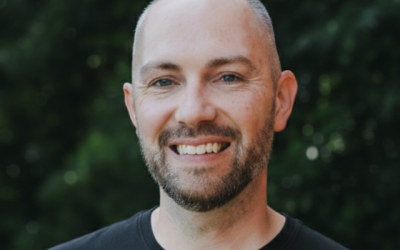Matt Gielen has spent two decades inside the engine room of the creator economy. From his early days in New York’s indie film scene to running production and audience development at Driver Digital, he’s lived through every phase of online video’s evolution. He led the digital division at Frederator — the studio behind Adventure Time and Fairly Odd Parents — before launching Little Monster, an agency that helped Netflix, MGM and others master YouTube. More recently, he co-founded Electric Monster, acquiring and scaling YouTube channels into major digital brands.
Now, after exiting that business, he’s plotting his next move with a new venture called Silverberry Studios – and he believes the creator economy is entering what he calls its “fourth era.”
At MIPCOM, Gielen told The Drop that the first era of online video was all about experimentation. “It’s the same story every time,” he said. “A new platform arrives, people kick the tyres and figure out what works.” The second era saw the rise of the MCNs – multi-channel networks that aggregated creators but often failed to deliver value. “Most of those were basically Ponzi schemes,” he said bluntly.
Then came the third era: the rise of the creator economy proper. Businesses that genuinely helped creators grow began to thrive. “We figured out how to make this a sustainable business,” he said. “Now we’re entering an era of professionalisation, standardisation and scalability.”
Gielen sees this fourth era as the point where digital-first companies start to look a lot more like traditional studios – but smarter, leaner and more diversified. “Studios producing YouTube long-form content will dominate both attention and revenue,” he argued. “Audiences spend more time there than anywhere else in streaming, and that’s where the ad dollars are going.”
He’s dismissive of the idea that short-form video can build meaningful IP. “You can polish a turd all day long,” he said, “but at the end of the day, it’s still a turd. AI-generated content right now? Same story. It’s going to be a tool, but people shouting about embracing it have a financial incentive for you to do so.”
For Gielen, the obsession with short-form and algorithmic reach misses the point. “You don’t spend enough time with a creator in short form to build a real brand. Long-form is where the emotional connection happens – and that’s what drives every other revenue stream.”
That focus on long-form, he argues, is why the YouTube economy is now effectively the new television business. “What are we watching on our TVs? Long-form YouTube,” he said. “Short-form is fleeting. The real money and longevity are in building owned IPs and multiple business lines – merchandise, live events, syndication. That’s what turns creators into studios.”
The conversation inevitably turns to the current obsession with vertical drama and micro-storytelling apps like ReelShort and DramaBox. Gielen isn’t convinced. “There’s a bit of a moat on the production side, but not much on the distribution side,” he said. “Eventually, the audience will say: ‘Why am I paying for this when I can get similar content for free on social platforms I already use?’” He predicts that premium short-form will migrate to major social platforms rather than live on niche, paid apps.
Traditional media companies are already paying attention. Fox Entertainment’s recent investment in Holywater and other similar moves show how legacy studios are once again chasing the digital opportunity. Gielen thinks we’ll see more of that — but this time, with a difference. “A lot of traditional studios got burned early,” he said. “But now, digital media has matured. The business models are real. There’s better diligence, better understanding of revenue flows. We’re getting to a point where digital studios are big enough to be meaningful acquisition targets.”
As for his own plans, Gielen isn’t revealing too much yet. “Ultimately, I want to build a digital studio that all future digital studios are based on,” he said. “Best in class. Scalable. Built around creators and IPs that can exist across multiple platforms and business lines.”
Whatever comes next for Silverberry Studios, Gielen’s perspective feels like a clear-eyed reality check for an industry still finding its footing. The hype cycles around AI, short-form and new platforms may keep spinning, but his message is simple: build real IP, build long-form connection, and build a business that lasts.
The fourth era of digital video has begun — and for the first time, it looks a lot like television.





